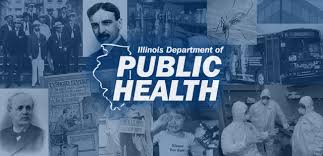By Thomas Best
I am sure you have heard of the term “serendipity”—the idea that sometimes circumstances, or luck, lines up to provide you a great opportunity. As I began my story last week of James Hiram West of Roseville, Illinois, I was blessed with such “serendipity. West is of interest to me because of the research I am completing regarding the history of baseball in Monmouth. West, is as far as I know now, only one of two Warren County born athletes who would play in the major leagues.
You will recall from last week that West’s rise to fame in 1905 went through Knox College, a new western Illinois baseball league, and the Burlington Flint Hills ball club. For his pitching prowess, West was hailed as one of the best pitchers to ever emerge from western Illinois. By the end of the summer of 1905, after amassing a record of 7-7 in 14 games pitched in Burlington, West’s skills attracted the attention of the American League’s Cleveland franchise. Offered $500 to sign (about $17,000 in today’s cash—a good amount), he would be playing for the “Naps,” so named in honor of their best ball player and manager, Napoleon Lajoie.
One of the first records of West heading to Cleveland was in the Burlington Evening Gazette of September 2, 1905. “Pitcher West alias ‘James’ who was sold to Cleveland has officiated in this city for the last time. He leaves for Chicago to-night, where he will join Cleveland and be given a tryout.” Noting that he must have been umpiring in Burlington when the Flint Hill’s season was over, West was considered a “hot prospect.” The Monmouth Republican Atlas of September 7, further expected West (who stood 6’0, weighed 185 pounds, and pitched and batted from the right-side) to be used sparingly in the last days of the season. From there, he would be farmed out into Cleveland’s minor league system for a year or two before gaining a permanent spot on the “Naps” roster.
Interestingly, an article in the Burlington Evening Gazette stated that he was signed before his stint with the Flint Hills was completed. The manager of the Burlington team, witnessing his right-hander’s 7-7 season with 92 strikeouts, a meager 20 walks, no defensive errors, and an ERA under 2.00, was confident that when West was called upon to pitch, his “the big fellow will have no trouble making good with the major league club.” The rest of the managers in the league were of a similar opinion, thinking of West as the best pitcher around. It also didn’t hurt West’s signing status that his reputation was for one of being clean cut and not known for not smoking or drinking. Strong as an ox, according to those who witnessed his pitching arm, it was believed this quick leap to the majors would be especially financially helpful in supporting his aging mother.
West’s wait for his debut for the Naps came only days after arriving in this Lake Erie city. The Burlington Press honored his promotion by describing how he was put into the game in the sixth inning to relieve “Jiggs” Donahue. With 6,000 fans were in attendance against the Chicago White Sox, it was said that despite showing some nerves, West “did not do so bad.” He would surrender three scratch hits and struck out three batters this day. That result was balanced by West allowing three walks and one wild pitch. Nevertheless, after some initial stage fright, West overcame a case of being “foozled” and settled down and was able to blank the White Sox for the remainder of his relief appearance.
Unfortunately, the visiting Chicago press was particularly critical of West stating that manager Lajoie’s choice to trot out this young man was not a wise one, considering the young man’s obvious case of the jitters. Interesting for us is also the comment that there had been some confusion about his last name, now certified for the press as “West” and not “James.”
The Waterloo Times Tribune in mid-October, whom had earlier observed his talent playing for Burlington, likewise felt obliged to disparage West for his poor performance over his next two games. Claiming that while he had looked “splendid” in practice games, his throwing ability failed him due to his obvious case of lacking the confidence required to face major league hitting. Specifically, there negative assessment was that he was “frightened out of his wits.” Despite such negative quips, the newspaper did state they expected West to recover before his season concluded. And indeed, he did. In one of his last contests of the season, facing the New York Highlanders (or future Yankees) 1-0, in his lone shutout of the season.
Roseville’s own completed that first season by tossing in six contests for 33 innings where he went 2-2 with a 4.09 ERA, one shutout, with 15 strikeouts against 10 walks, and no home runs given up.
Unfortunately, a trip back to Cleveland was not in the books for another five seasons. Instead, West was relegated to the minor leagues. An article in the Monmouth newspapers of March 1907 indicated that he must have returned to home to Roseville in the off-seasons before heading back to baseball in the spring. In this meantime, he pitched for the Wilkes-Barre Barons in 1906, where he produced a fine 22-17 season with over 200 strikeouts. In 1907, he it was off to the Class “A” Toledo Mud Hens of the American Association where he was praised for building a good reputation for getting himself out of “tight holes.” He would stay in Toledo for the next several seasons where he achieved 72 victories against 50 defeats. Such success did ultimately attracted the attention of both more minor and major league teams.
In the meantime, in 1909, at age 25, West found love and married 24 year-old Mary Alice Fisher. Together, they would have two girls, over the next several few years, Marjorie Emily, and Myrl Oweence.
Finally, in 1910, it was West’s second turn at a call to the “show.” On August 30, the Quincy Daily Herald, who writers remembered him as a celebrated pitcher with Knox College, observed that the Toldeo Club had sold his contract to the Cleveland Naps for a supposed $8,000—far more than the meager $500 he first signed for in 1905.
He broke the spring training camp of 1911 with the big club, but his improved talents did appear to arrive with him. Pitching in 13 games, West went a respectable 3-4 with 3 complete games, an ERA of 3.76, but with just 18 strikeouts versus 17 walks. As, it seemed he was still struggling with his control, by July was released by Cleveland and returned to pitching duties back in Toledo.
A Cleveland baseball historian John Phillips proved most disparaging in his appraisal of the man now known as “Hi” West. Phillips stated that in his two trips to Cleveland, that he did not show any improvement. Going from a 2-2 record in 1905 to a sub-.500 3-4 mark in 1911 was not what Cleveland expected of West. Considered still “wild” in his delivery, West was again shipped off to the minors. To his credit, he again recovered his control, and in his pitching from 1913 to 1914 in the Class “AA” highly-ranked Pacific Coast League, he became known as one of the best hurlers. In 1913, in fact, West lead that league with a 1.71 ERA and was said to have tossed—a record of the time—of 82 consecutive scoreless innings (however, I have my doubts as to that statistic according to available baseball records). The 1914 season, however, seemed to be his final best shot at returning to the majors. After throwing two complete game wins for the Portland, Oregon club, he his arm hurt and he spent the next three months trying to recover. Now 30 years-old, West’s days on the mound appeared to be over. Oddly, West his critic’s appraisal and said that his problems were not centered in a tired or hurt arm, but a case of a bad sunburn he had suffered on a beach.
But not yet ready to retire, West, over the next few seasons, bounced from one minor club to the next in the challenging Pacific Coast League. Next, he took a lower assignment in the Western League’s Topeka, Kansas franchise. However, still hoping to show off his talent, he hooked up with Denver’s club, and then in 1916, achieved another chance to pitch in the PCL with San Francisco. Sadly, on one day, despite pitching a ten-inning shutout, a critic of his comeback, described West as still “creaky” and the same old “derelict pitcher” whose performance that day was little more than a “miracle.” With no takers for his services during the 1917 season, West was picked up 1918 by the Sacramento PCL club during what was a war-time shortened season. He finished that season with a respectable 9-6 record. But with no other prospects after the close of World War I, West turned to working for the Standard Oil Company in Santa Barbara, where he spent the rest of his life toiling in their sales department. During his next three decades of life, West became a superb golfer and excelled in various area tournaments. It must be that he also still loved playing baseball, as he also played in some “old-timer” games to help raise funds for poverty-stricken ball players during the era of the Great Depression.
West finally passed away at age 78 on May 24, 1963 in the southern California environment he apparently had come to love. His remains were cremated and those ashes were interred in Los Angeles in the famed Forest Lawn Cemetery near the Hollywood sign. His wife, Mary, passed away in 1983, nearly 100 years old.
James Hiram West was, therefore, our first known major league player from Roseville. Next week, I will turn to the first part of the story of Larry Burright.
Thank you for your interest.













